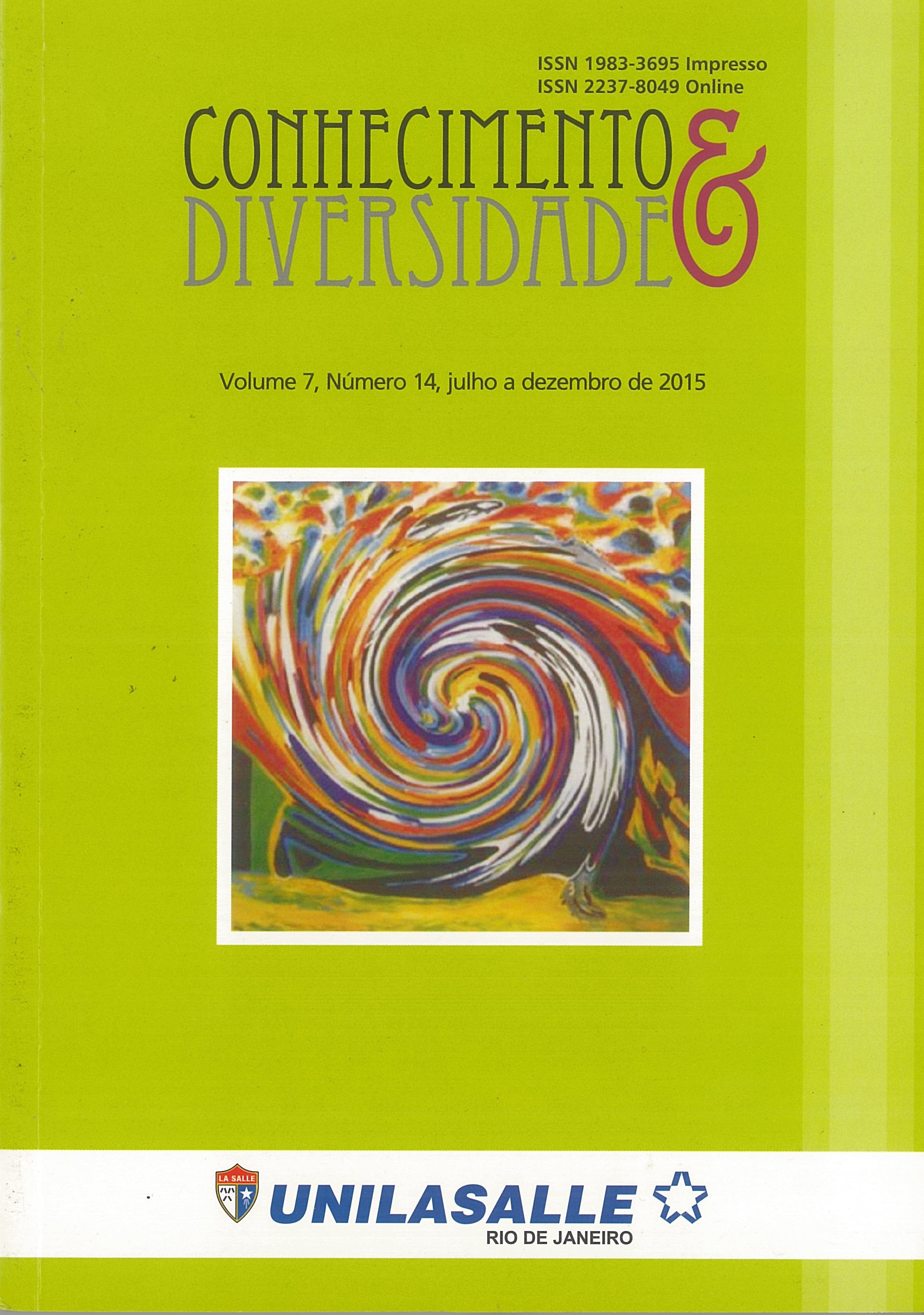A relação entre participação política, instituições democráticas e cultura
DOI:
https://doi.org/10.18316/2853Palavras-chave:
Participação Política. Democracia. Cultura Política. Institucionalismo.Resumo
Resumo
A partir das definições de participação política e de democracia, a presente investigação analisa as teorias explicativas sobre o envolvimento político dos cidadãos em uma cultura democrática. Para tanto, são apresentadas quatro definições de participação política: 1) participação como voto; 2) participação como tentativa de influenciar o governo; 3) participação como ação direta; 4) participação como discussão. Em seguida, enfocam-se duas perspectivas teóricas no debate político contemporâneo: a da cultura política e a institucionalista. Essas duas abordagens mostram causas diferentes para a participação e o envolvimento dos cidadãos com a política e são, assim, relevantes para o debate sobre a baixa participação e os caminhos da democracia no mundo contemporâneo.
Palavras-chave: Participação Política. Democracia. Cultura Política. Institucionalismo.
The relation between political participation, democratic institutions and culture
Abstract
Starting from the definitions of political participation and of democracy, the present investigation analyses the explanatory theories on the citizens' political involvement in a democratic culture. Therefore, four definitions of political participation are presented: 1) participation as vote; 2) participation as attempt of influencing the government; 3) participation as direct action; 4) participation as discussion. Afterwards, two theoretical perspectives are focused in the contemporary political debate: the one of the political culture and the institutionalist. These two approaches show different causes for the participation and involvement of citizens with politics and are thus relevant to the debate about the low participation and the ways of democracy in the contemporary world.
Keywords: Political participation. Democracy. Political Culture. Institutionalism.
Referências
ALMOND, Gabriel; VERBA, Sidney. The civic culture. Princeton: Princeton University Press, 1963.
____. The civic culture revisited. Boston, Toronto: Little, Brown and Company, 1989.
ALTMAN, David. Individual, economic, and institutional causes of electoral participation in Latin America. Lapop small grant series, 2008.
BLAIS. What affect voter turnout? Annual Review of Political Science, v. 9, p. 111-125, 2006.
BOOTH, J.; SELIGSON, M. Political support and participation in Latin América: critical citizens and the puzzle of legitimacy’s effects. Paper prepared for presentation at the 3° Congreso de la Asociación Latinoamericana de Ciência Política, Campinas, Brasil, 2006.
BOOTH, John; RICHARD, Patricia. A formação do capital social na América Central: violência política, repressão, dor e perda. Opinião Pública, v. VII, n. 1, Campinas, p. 75-99, 2001.
BOOTH, John; SELIGSON, Mitchell A. The legitimacy puzzle in Latin America: political support and democracy in eight Latin American nations. Cambridge: Cambridge University Press, 2009.
DALTON, R.; WATTEMBERG, Martin P. edts. Parties whitout partisans. Political change in advanced industrial democracies. Oxford: Oxford University Press, 2000.
EASTON, David. A re-assesment of the concept of political support. British Journal of political Science, v. 5, p. 435-57, 1975.
GUTMAN, A.; THOMPSON, D. Why deliberative democracy. Princeton: Princenton University Press, 2004.
HABERMAS, Jürgen. Three normative models of democracy. In: BENHABIB, S. (Ed.) Democracy and Difference. Contesting the Boundaries of the political. Princeton: Princeton University Press, p. 21-30, 1996.
INGLEHART, Ronald. The renaissance of political culture. American Political Science Review. v. 82, n. 4, p. 1203-1229, 1998.
INGLEHART, R.; WELZEL, C. Modernization, cultural change, and democracy: the human development sequence. Cambridge: Cambridge University Press, 2005.
KOSTADINOVA, Tatiana; POWER, Timothy. Does democratization depress participation? Voter turnout in the Latin American and Eastern European transitional democracies. Political Research Quarterly, v. 60, n. 3, p. 363-377, 2007.
LOPES, Denise M. N. N. Para pensar a confiança e a cultura política na América Latina. Opinião Pública, v. X, n. 1, p. 162-188, 2004.
MULLER, E. N.; SELIGSON, M. A. Civic culture and democracy: the question of causal relationships. American Political Science Review, v. 88, n. 3, p. 635-654, 1994.
NORRIS, Pippa (Ed.). Critical citizens: global support for democratic government. Oxford: Oxford University Press, 1999.
PATEMAN, Carole. Participation and democratic theory. Cambridge: Cambridge University Press, 1970.
PHARR, S. J.; PUTNAM, Robert. Disaffected democracies: what’s troubling the trilateral countries? Princeton: Princeton University Press, 2000.
POWER, Timothy; GARAND, James C. Determinants of invalid voting in Latin America. Electoral Studies, v. 26, n. 2, p. 432-444, 2007.
PUTNAN, Robert D.; LEONARDI, Robert; NANETTI, Raffaella Y. Comunidade e democracia: a experiência da Itália moderna. Rio de Janeiro: Editora da Fundação Getúlio Vargas, 1996.
RENNÓ, Lucio. Estruturas de oportunidade política e engajamento em organizações da sociedade civil: um estudo comparado sobre a América Latina. Revista de Sociologia e Política, v. 21, p. 71-82, 2003.
RIKER, W. The theory of political coalitions. New Haven: Yale University Press, 1962.
SARTORI, G. The theory of democracy revisited. Chatham House Publishers, 1987, 2 vol.
SCHUMPETER, Joseph. Capitalismo, socialismo e democracia. Rio de Janeiro: Zahar Editora, 1984.
SELIGSON, Mitchell; BOOTH, John; GOMÉZ, J. Os contornos da cidadania crítica: explorando a legitimidade democrática. Opinião Pública, v. 12, n. 1, p. 1-37, 2006.
TEORELL, Jan. Political participation and three theories of democracy: A research inventory and agenda. European Journal of Political Research, v. 45, n. 5, p. 787-810, 2006.
VERBA, Sydney; NIE, Norman. Participation in America. Political democracy and social equality. Chicago: University of Chicago Press, 1987.
Downloads
Publicado
Edição
Seção
Licença
Conforme recomendado pelo o Public Knowledge Project, a RCD adota para seus artigos uma licença CREATIVE COMMONS: Atribuição CC BY 4.0.
Esta licença permite que outros distribuam, remixem, adaptem e construam sobre o seu trabalho, mesmo comercialmente, desde que lhe dêem crédito pela criação original.
Esta é a licença mais adequada oferecida.
Recomendado para a máxima divulgação e uso de materiais licenciados.



